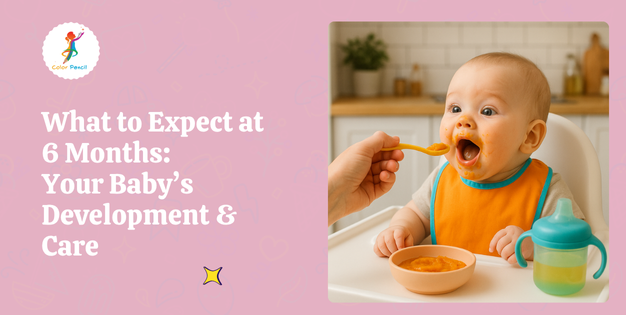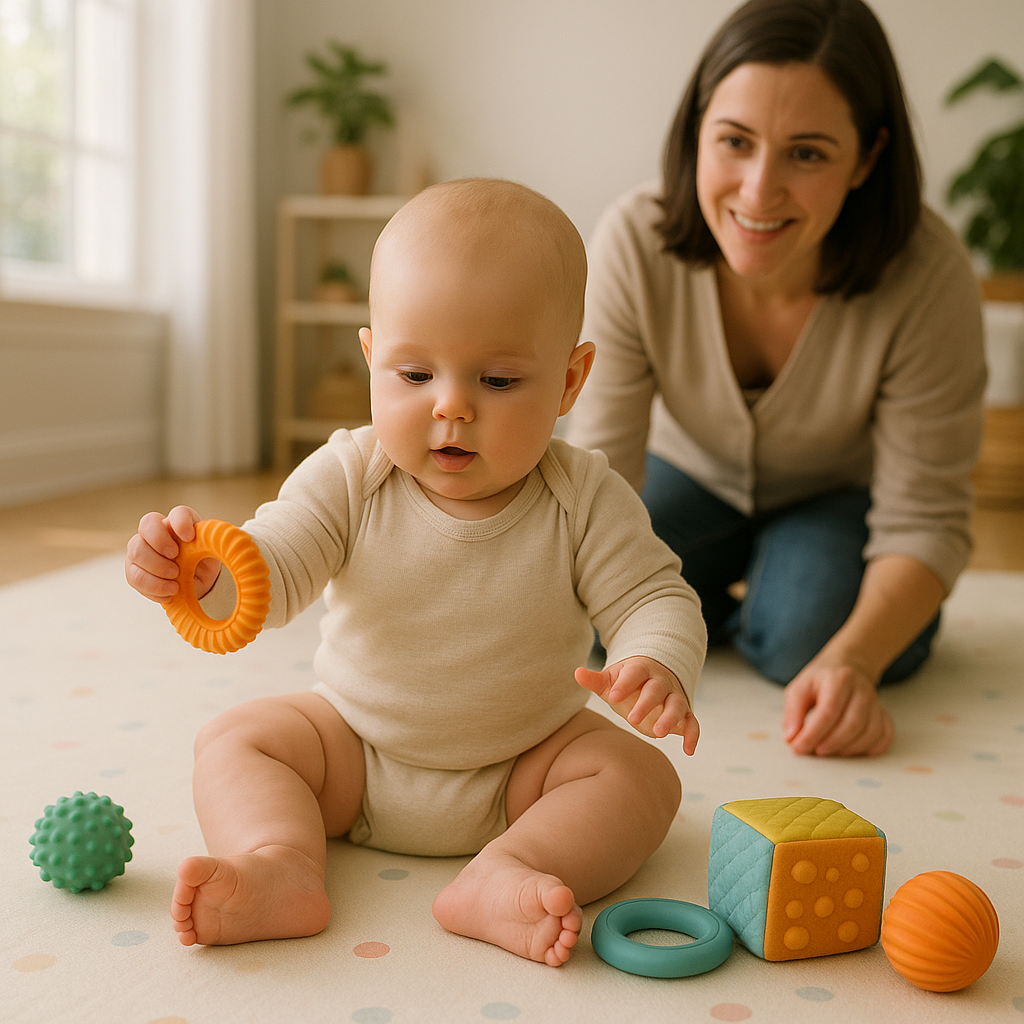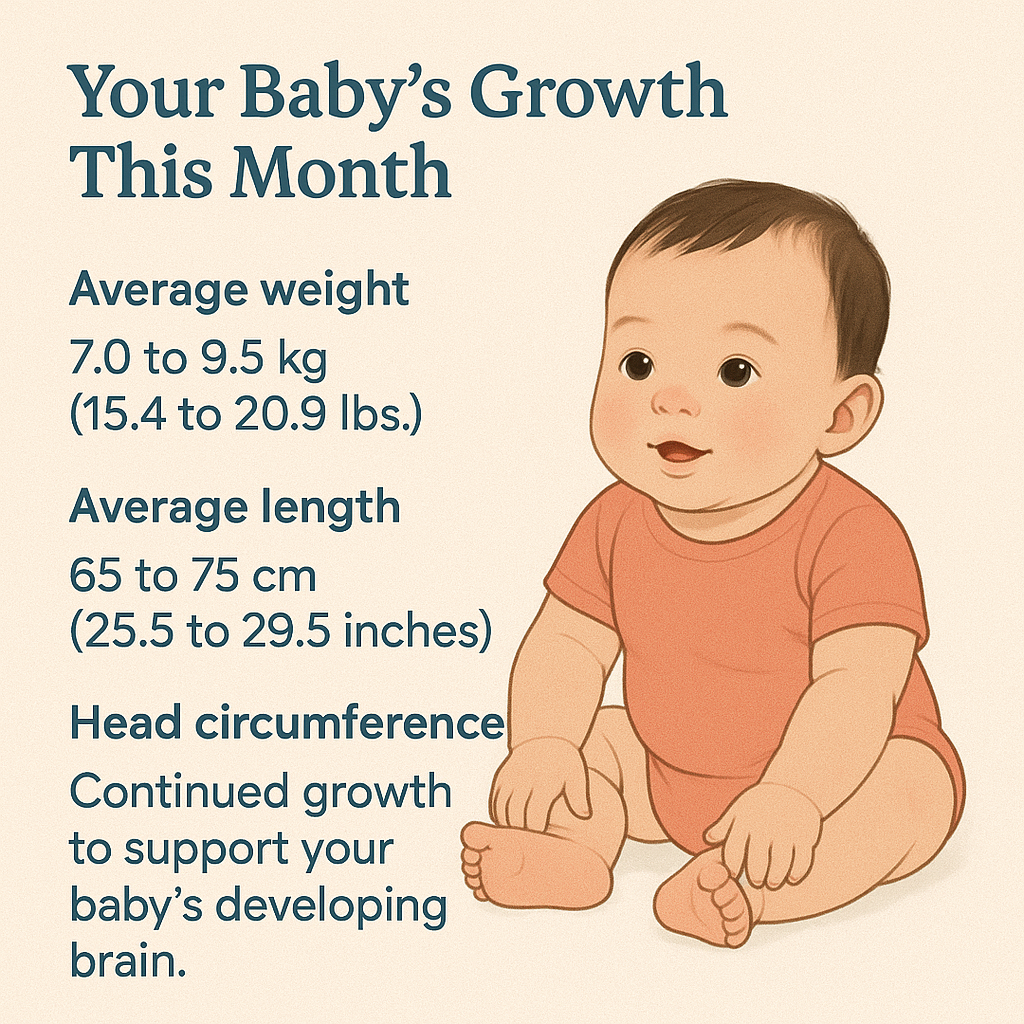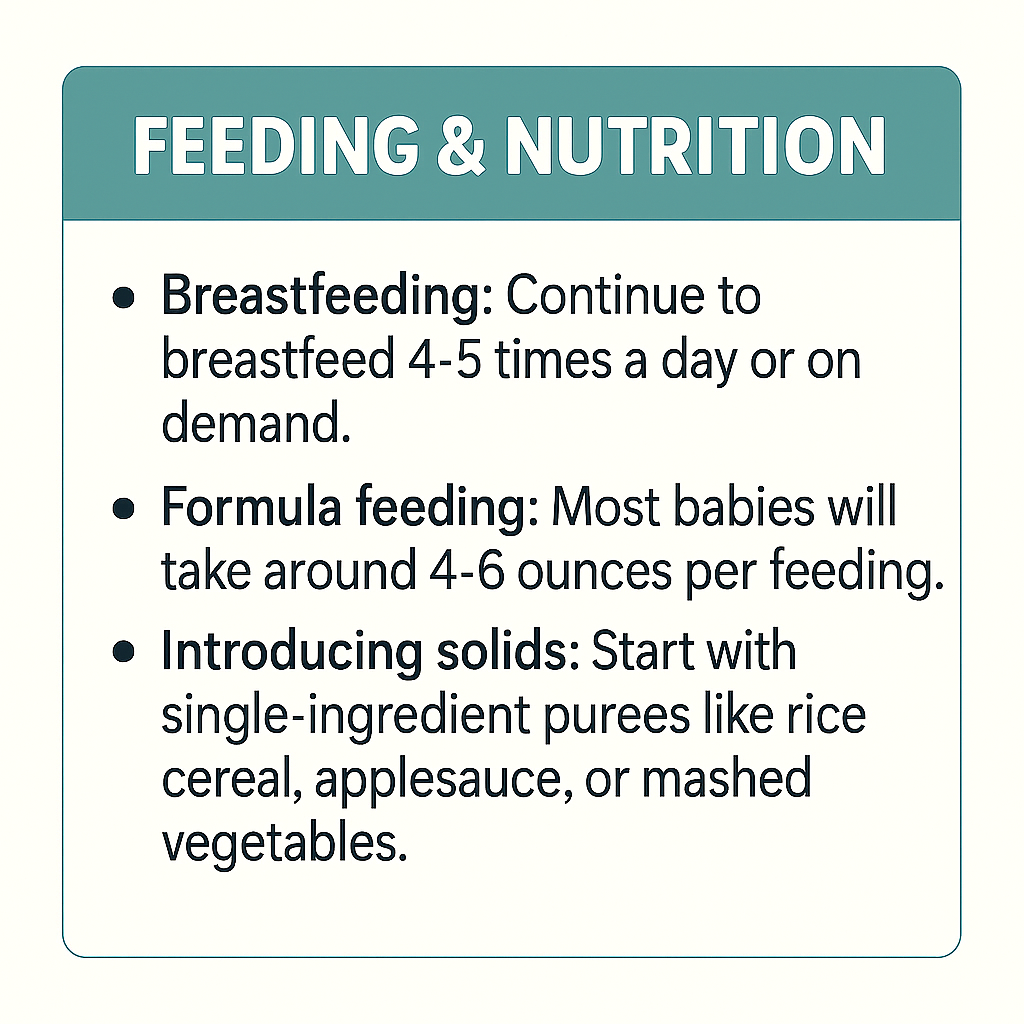Milestones, Growth, Sleep, Feeding, and Practical Tips for the Sixth Month
At 6 months, your baby is entering a whole new phase of growth and development. They are now much more interactive, curious, and may be reaching some exciting milestones like sitting up on their own, starting solids, and showing a wider range of emotions. Here’s what to expect during this amazing month.
🍼 Your Baby’s Growth This Month
- Average weight: 7.0 to 9.5 kg (15.4 to 20.9 lbs).
- Average length: 65 to 75 cm (25.5 to 29.5 inches).
- Head circumference: Continued growth to support your baby’s developing brain.
Note: Growth patterns can vary, so it’s always good to track your baby’s development with your pediatrician.
👶 Developmental Milestones
At 6 months, your baby may show:
- Sitting without support: Many babies can now sit upright with little or no support for short periods.
- Crawling or early signs of crawling: Some babies will start scooting or using their arms to push themselves around.
- Bilateral hand use: Your baby will be using both hands together more often, which helps develop coordination.
- Improved hand-eye coordination: They’ll be able to pick up objects and explore them with their hands and mouth.
- Babbling with consonants: Expect more complex sounds like “ba-ba” or “da-da.”
- Increased social interactions: They will show more engagement, recognizing faces and emotions, and responding with laughs and gestures.
🎯 Firsts to Watch For
- Sitting up on their own: It’s exciting when your baby can stay seated for a little while without any assistance.
- Rolling in both directions: Many babies will become very proficient at rolling, both from back to front and front to back.
- Attempting to crawl: Look for early signs of crawling, such as rocking back and forth on hands and knees.
- Grabbing food: Your baby may show interest in grabbing and putting food into their mouth if they’ve started solids.
🍽 Feeding & Nutrition
- Breastfeeding: Continue to breastfeed 4-5 times a day or on demand.
- Formula feeding: If you’re formula feeding, most babies will take around 4-6 ounces per feeding, 4-5 times per day.
- Introducing solids: By 6 months, many babies are ready to start solid foods. Start with single-ingredient purees like rice cereal, applesauce, or mashed vegetables.
- Monitor diaper output: Expect 4 to 6 wet diapers per day, but this may vary if you’ve started solids.
🌙 Sleep Patterns
- Total sleep: Around 12 to 15 hours of sleep per day.
- Day naps: Typically, 2 naps a day—one in the morning and one in the afternoon.
- Night sleep: Some babies may now sleep through the night, but most will still wake for at least one feeding.
- Sleep training: This may be a good time to begin establishing a more consistent sleep routine and helping your baby learn to self-soothe.
Tip: Keep a consistent bedtime routine—dim lights, quiet time, and a gentle, calming atmosphere—to help your baby settle into sleep.
💉 Vaccines & Health Checks
- 6-month vaccinations: These may include the second round of vaccines such as DTaP, Hib, IPV, and the flu shot (if flu season).
- Health check-up: This is also the time for your baby’s 6-month well-child checkup. Discuss any concerns about sleep, feeding, or development with your pediatrician.
🤒 Common Health Notes
- Teething: Your baby might be cutting teeth around this time, which can cause drooling, irritability, and a desire to chew on things.
- Increased appetite: As solids are introduced, your baby may start eating more and may be hungrier between meals.
- Increased mobility: As babies start moving more, be extra vigilant about baby-proofing your home and ensuring their environment is safe for exploration.
🔔 Parental Care Reminders
- Continue tummy time: Even if your baby is already sitting up, tummy time remains important for building muscle strength needed for crawling.
- Offer a variety of textures: Introduce toys and objects of different textures to help your baby explore through touch.
- Encourage play: Play with your baby using colorful toys, encouraging them to grasp and manipulate them.
- Start reading: Even if your baby just wants to chew on the book, introducing simple board books can help build their language skills.
Pro Tips for Parents This Month
- Encourage exploration: Give your baby plenty of floor time to encourage movement and exploration.
- Mix up textures: Offer a variety of soft, safe toys that are easy for your baby to grasp and explore with their mouth.
- Offer finger foods: If your baby is ready, try giving them soft finger foods like small pieces of banana or steamed veggies to practice self-feeding.
- Be patient with sleep transitions: As your baby’s sleep patterns continue to evolve, be patient and consistent with your bedtime routine.
Final Thoughts
At 6 months, your baby is rapidly growing, developing new skills, and becoming more interactive with the world. The milestones during this time, like sitting up and starting solids, are exciting, and your baby’s growing curiosity about their environment will keep you on your toes. Cherish these moments, as they’ll pass all too quickly!
Visited 160 times, 1 visit(s) today





